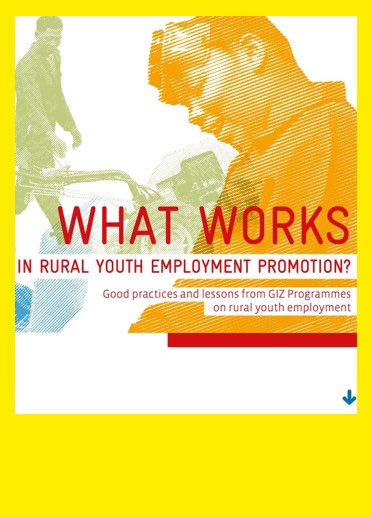Sub-Saharan Africa (SSA) is the world’s youngest continent, with 70 per cent of its rapidly increasing population below the age of 30. Every year, 25 million young people in Africa enter the labour market, more than half of them (14 million) in rural areas. By the year 2030, 320 million new jobs will need to be created, which makes Rural Youth Employment (RYE) one of the most pressing and challenging topics for our partner governments, but also presents an enormous opportunity for economic development in capitalising on this “youth dividend”.
The current study aims to take a first step in answering the question “What works in Rural Youth Employment Promotion (RYEP)?” through an analysis of the portfolio of the German Development Cooperation in technical cooperation. In addition to distilling the results, success factors and lessons learned from each project, the aim is to structure the lessons systematically in an analytical framework derived from BMZ’s “Integrated Approach to Employment Promotion” that is applied and adapted to rural areas.


